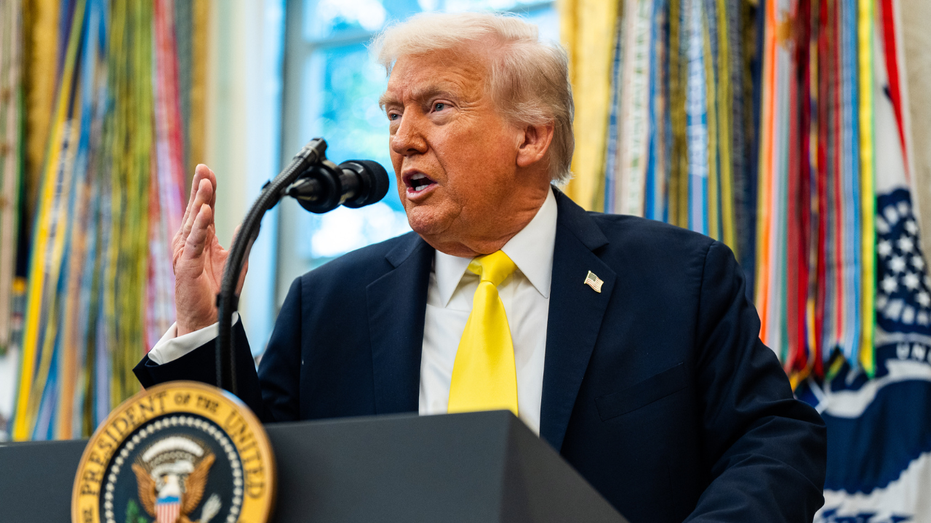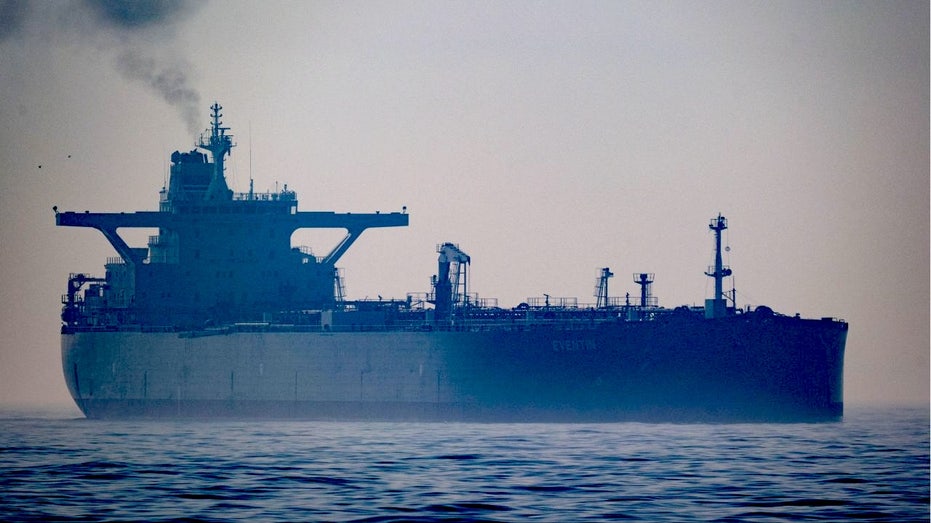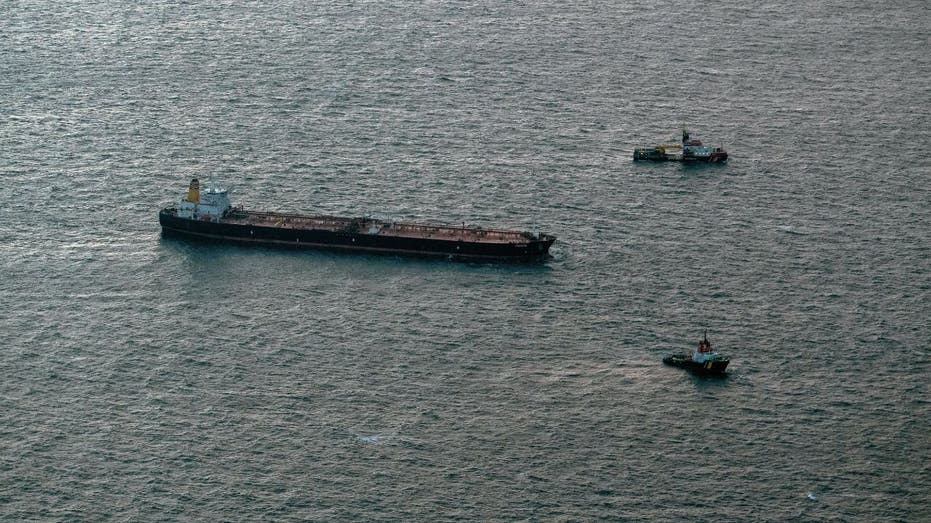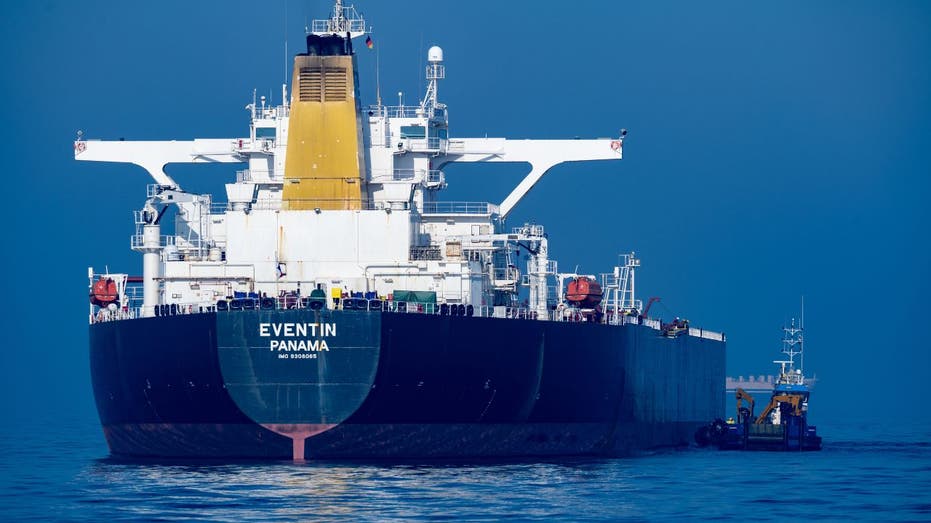China, India are buying Russian oil in large quantities, Gordon Chang says
Gatestone Institute senior fellow Gordon Chang weighs in on President Donald Trump holding off on China sanctions over purchases of Russian oil and the Chinese economy slowing sharply in July.
Often unmarked and hidden from commercial tracking systems, a growing fleet of "ghost ships" is quietly delivering sanctioned Russian oil to ports in China and India — intensifying tensions with Washington as high-stakes trade negotiations unfold with both countries.
President Donald Trump said Wednesday India has agreed to stop the practice of purchasing discounted Russian crude and re-exporting refined oil products on the global market, a tactic that props up Moscow’s wartime economy.
TRUMP TO HIKE INDIA TARIFFS, ACCUSES COUNTRY OF FUELING 'RUSSIAN WAR MACHINE'

President Donald Trump said he also wants China to stop buying Russian oil exports. (Demetrius Freeman/The Washington Post / Getty Images)
Trump has previously used tariffs on Indian imports as economic leverage, framing the move as part of a broader strategy to hold nations accountable for unfair trade practices and for undercutting Western sanctions.
Trump said that India cannot "immediately" halt oil shipments, adding that it will be "a little bit of a process, but the process is going to be over with soon."
Central to Trump’s argument is a covert network of nondescript oil tankers — often referred to as "ghost ships" — that quietly ferry Russian crude in defiance of G7 price caps and European Union sanctions imposed following the Kremlin’s unprovoked invasion of Ukraine.

The tanker Eventin off the coast of Germany was previously reported as transporting crude oil originating from Russia. (Stefan Sauer/picture alliance via / Getty Images)
"Russia is able to avoid some of the worst parts of sanctions against its energy exports with its shadow fleet," Benjamin Jensen, director of the Futures Lab at the Washington, D.C.-based Center for Strategic and International Studies (CSIS) think tank, told Fox News Digital in an earlier interview.
"Energy is the lifeblood of the Kremlin’s economy," Jensen said. "The hard cash they earn from exports allows them to quickly pay new contracted soldiers and produce more weapons."
He added that countries that continually purchase sanctioned oil are "actively supporting Russia in its war."
EU WILL DITCH RUSSIA, AGREES TO PURCHASE $750B IN AMERICAN ENERGY SUPPLIES

The Trump administration has stepped up economic pressure on Russia and its allies in order to end the Kremlin’s war in Ukraine. (Kostiantyn Liberov/Libkos / Getty Images)
Despite U.S. sanctions, China is the leading importer of Iranian oil and the second-largest buyer of Russian crude, much of which is funneled through the growing fleet of untracked "ghost ships."
The discreet maritime network of "ghost ships" is drawing renewed attention as the Trump administration steps up economic pressure to end the Kremlin’s war in Ukraine.
Jensen, who is also a senior fellow at the CSIS, said Russia’s "ghost fleet" employs several evasion tactics to circumvent U.S. sanctions.
CHINA’S OIL TIES WITH RUSSIA AND IRAN ARE TRADE FLASHPOINTS, US SAYS

The tanker Eventin is part of a discreet maritime network of "ghost ships" transporting Russian oil to foreign ports. (Stefan Sauer/picture alliance via / Getty Images)
These ships often operate under foreign flags to obscure their origins, frequently change names, transfer ownership through shell companies, disable transponders to evade tracking, and conduct mid-sea transfers to conceal their cargo.
"Imagine one ship leaving port, meeting another in international waters, transferring its goods, and then that second ship continuing the journey," Jensen told Fox News Digital of the ship-to-ship transfers.
"In some cases, the crews might not even fully always appreciate that they're transporting illegal Russian oil," added Jensen.
TRUMP CONSIDERING MEETING WITH CHINA'S XI IN THE NEAR FUTURE
Earlier this year, the 19-year-old crude oil tanker named Eventin was seized by German authorities after the ship suffered engine failure in the Baltic Sea. The vessel was previously identified as a ship that exports Russian crude oil and other petroleum products.
German authorities discovered that the Panama-flagged vessel, which was previously named Charvi and Storviken, was carrying 99,000 tons, or approximately $45 million worth, of Russian oil.

The tanker Eventin was seized by German authorities in early 2025 after it suffered engine failure. (Stefan Sauer/Picture Alliance / Getty Images)
Jensen said that while some ships in the shadow fleet have been intercepted, a comprehensive, whole-of-government approach is needed.
He described one that brings together the intelligence community, law enforcement, and agencies like the Commerce and Treasury departments to coordinate with international partners, seize vessels and make it increasingly difficult for Russia to circumvent sanctions.
GET Gxstocks ON THE GO BY CLICKING HERE
"You are never going to be able to completely stop all oil smuggling, but you can reduce it and make it harder and harder to do," Jensen said.
"But don't think this is only a China or Iran or North Korea issue. There's a lot of countries where commercial actors see the opportunity to increase their profit margins, and that makes ghost ship oil more attractive."




